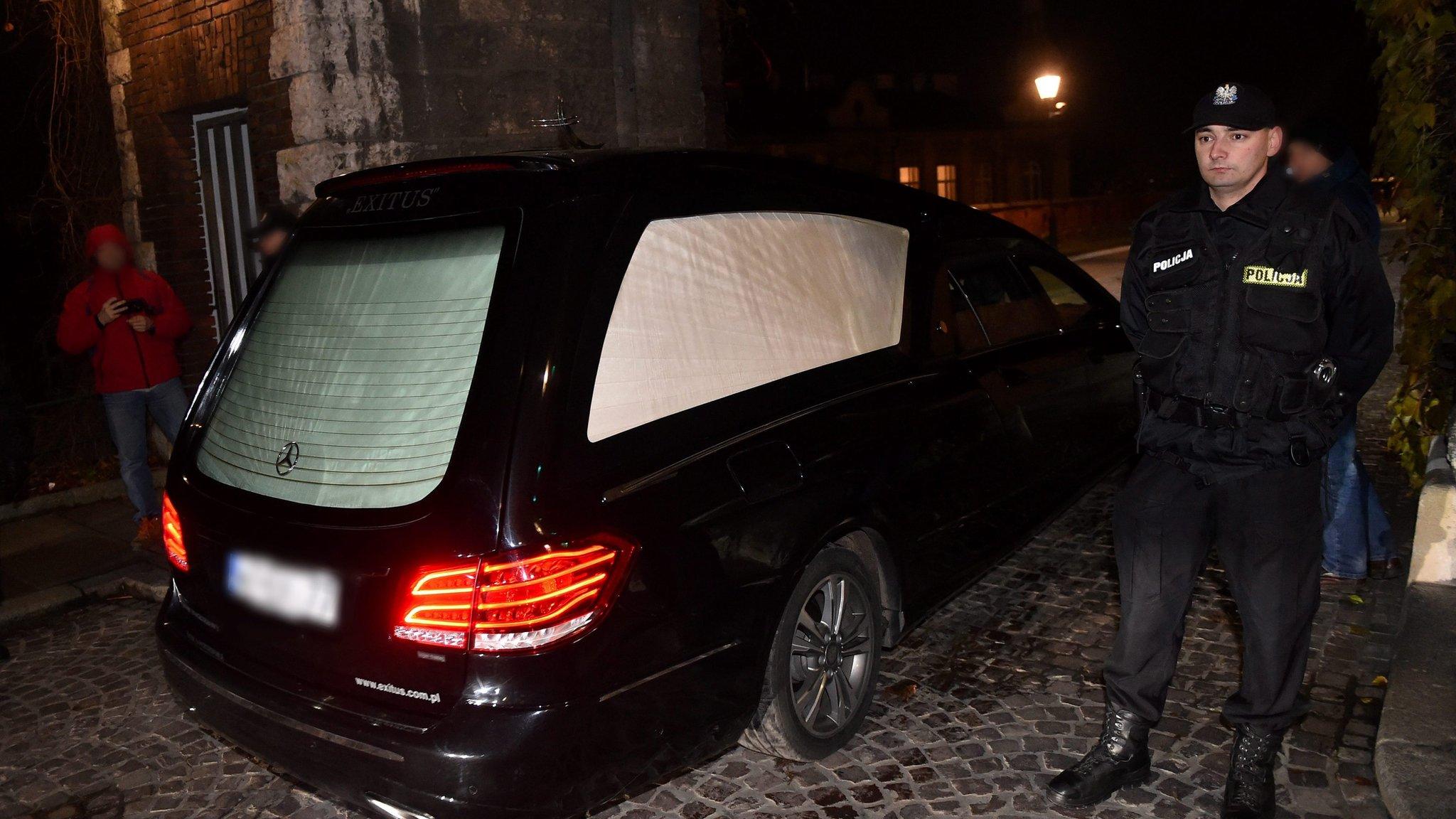NI forensics aid Polish president's plane crash probe
- Published
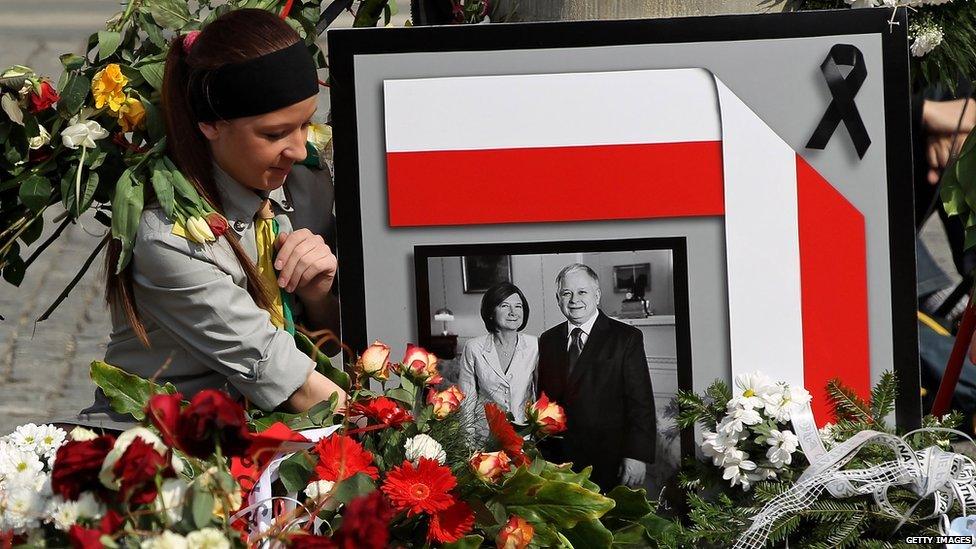
The air disaster plunged Poland into national mourning in April 2010
Polish investigators trying to establish the cause of a plane crash that killed the country's president, Lech Kaczynski, have asked Northern Ireland forensic scientists for help.
Previous investigations blamed pilot error and bad weather for the crash in western Russia seven years ago.
A new inquiry was launched last year after a member of the Polish government said there may have been an explosion.
Samples have arrived at the forensic labs near Carrickfergus, County Antrim.
Samples have also been sent to a number of forensic labs around the world to test for explosive residues.
The crash of the Soviet-built Tu-154 jet in April 2010 killed 96 people - the worst such disaster for Poland since World War Two.
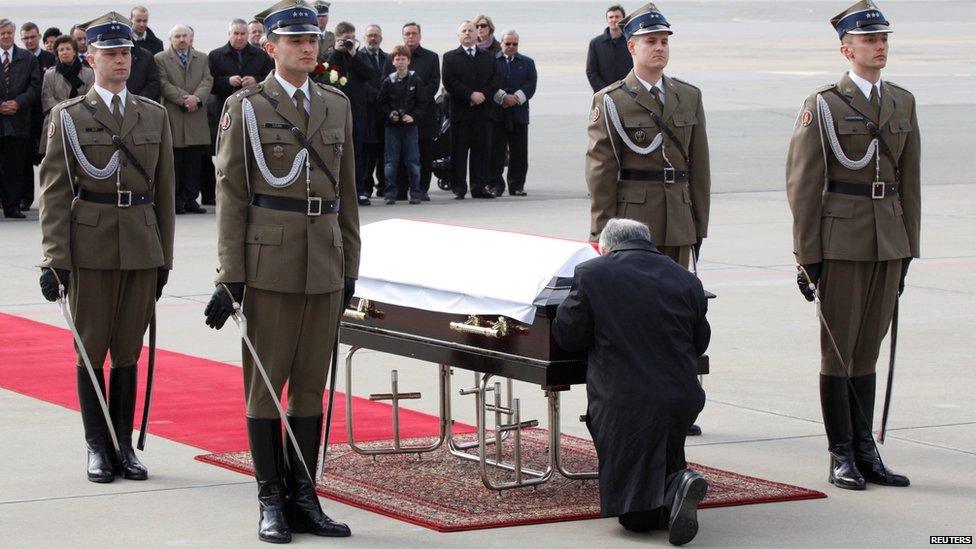
Jaroslaw Kaczynski mourns his twin brother Lech, who died on the plane with his wife
The National Prosecution Office in Warsaw said it had signed a contract with Forensic Science Northern Ireland (FSNI) to "perform explosive trace analysis on samples preserved during the ongoing investigation into the crash of TU-154 M No.101 aircraft".
"FSNI's work under this contract is purely scientific and routine" said the National Prosecution Office on its website.
"FSNI will not make any comment on the potential causes of the crash, nor offer an opinion or interpretation of the analysis results in such context."
The samples being tested in Northern Ireland arrived in two vans last month.
'Recognised expertise'
The leading forensic adviser to the National Prosecution Office in Warsaw, Pavel Rybicki, travelled with them.
"What we would like to establish is if there are explosive residues on the samples taken from Poland by the prosecutors," Mr Rybicki told the BBC News NI.
"We would like to confirm the presence of residues of explosive, or not, and all the results of the analysis will be taken into account in the further stage of the investigation."
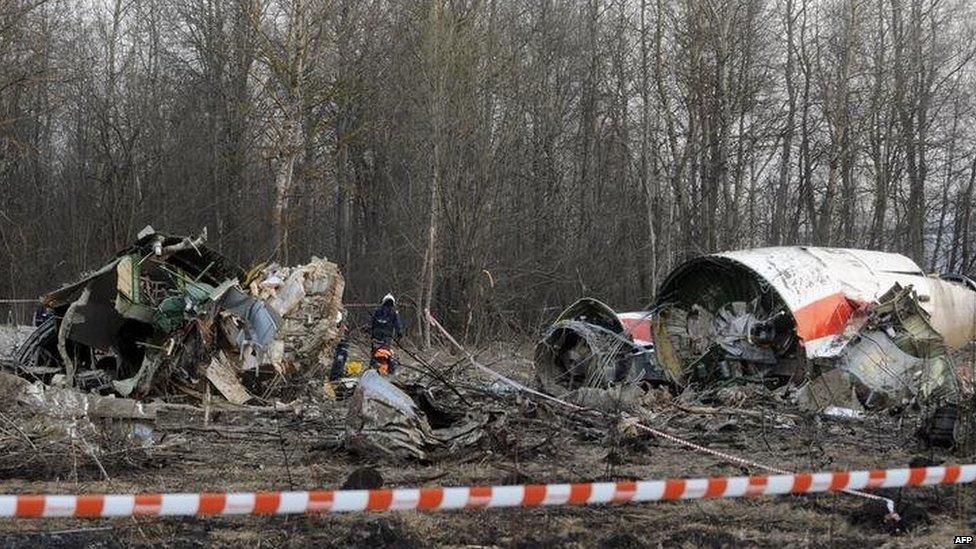
Many top Polish officials were also killed in the crash
The Northern Ireland Department of Justice confirmed that the forensic service based at Seapark near Carrickfergus "has been engaged by the Polish National Prosecution Office to conduct scientific work on their behalf".
Mr Rybicki said forensic scientists in Northern Ireland had been chosen to help because of their recognised expertise in explosives analysis.
"We are here because we know the scientific level of Forensic Science Northern Ireland and their professionalism is well known, that is why we chose the laboratory to help us in our investigation," he explained.

Katyn massacre: What happened
Poland's senior politicians and military officers were being taken to western Russia to commemorate the 70th anniversary of the Katyn massacre.
A number of events had been organised to mark the mass killings of more than 20,000 Polish army officers and others by Soviet secret police during World War Two.
The presidential plane had been attempting to land in dense fog, and official inquiries by Polish and Russian investigators concluded that the crash was mainly caused by pilot error.

Announcing a new investigation into the crash last year, Polish Defence Minister Antoni Macierewicz said previous inquiries had been riddled with "mistakes".
Suggesting there may have been an explosion, he said the plane had "disintegrated" between 15 and 18 metres before crashing.
The current investigation has failed to produce any credible evidence to support the theory that it may have been caused by an explosion.
- Published21 June 2016
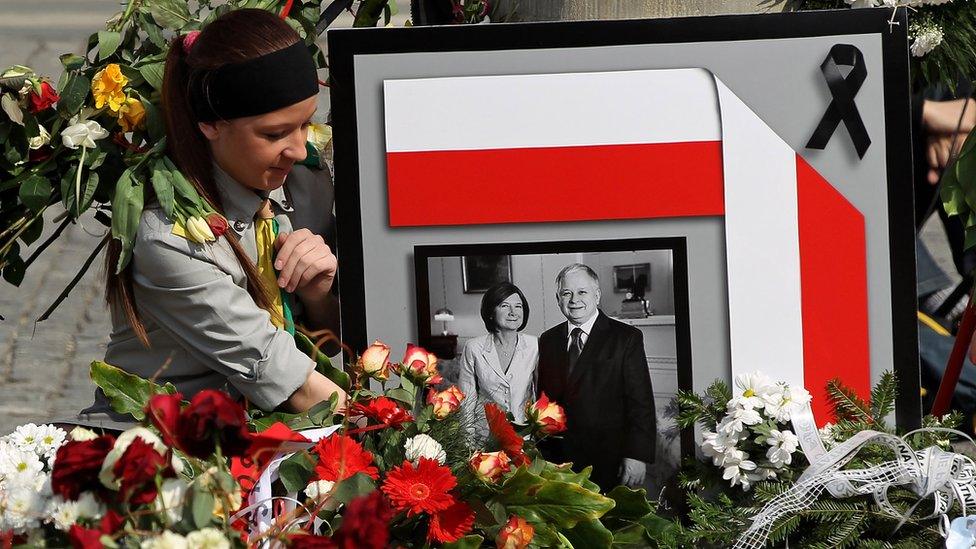
- Published31 March 2016
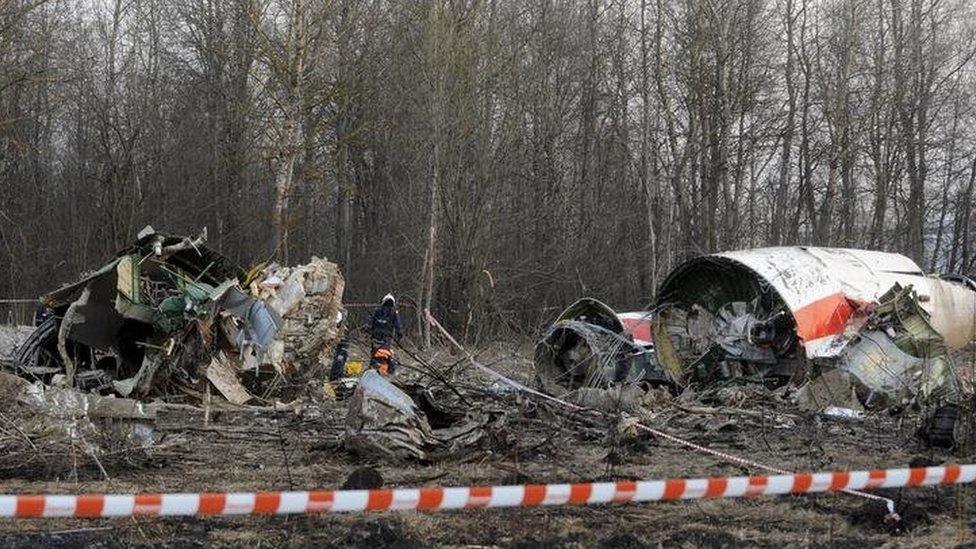
- Published15 November 2016
